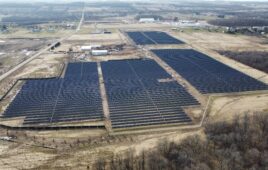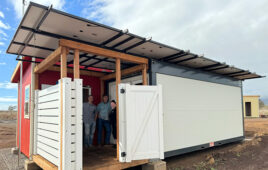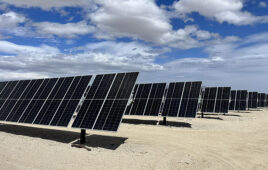More than 300 environmental justice advocates, environmental groups and renewable energy companies sent a letter to leaders of the Senate Finance and House Ways & Means Committees today supporting a direct pay option for the residential energy efficiency property tax credit (26 U.S.C. § 25D). Congressional action to make the credit refundable will enable disadvantaged communities and lower-income households — who spend a disproportionate amount of their income on energy — to access the economic, health and emissions benefits of clean energy.
Low- and moderate-income (LMI) households have the least ability of all American households to bear the costs of clean energy investments while waiting to receive federal incentives. It currently takes several years for LMI families with little to no tax liability to make full use of existing section 25D tax credits for residential clean energy purchases, deeply undermining their effectiveness. Direct pay allows LMI families to receive their entire subsidy in a single year, offering tremendous opportunities to expand rooftop solar to a more diverse group of families who desire the benefits of distributed renewable energy, but need a more equitable incentive structure to achieve it.
“A direct pay option for section 25D would put main street Americans on equal footing with their higher-income and corporate counterparts, which isn’t only the fair and equitable thing to do, it is also one of the best decarbonization policies available,” the letter reads. “Incentivizing households to reduce residential emissions both empowers individuals to make a difference and would have a profound effect on the U.S.’s overall greenhouse gas emissions profile.”
An independent report recently released by RAND found that inequities with the current residential tax credit could be ameliorated by making the credit refundable, also referred to as direct pay. Direct pay for 25D would help unlock energy savings for families in every zip code of the country, while also creating hundreds of thousands of new jobs and supporting small businesses. As the Senate and House of Representatives consider the extension and modification of several energy related tax provisions, signatories to the letter are calling on Members of Congress to include a direct pay or similar cash payment program for residential energy properties.
“Black families and entire communities might be left behind in the clean energy transition, thus losing out on the benefits of healthier, more resilient homes and more income to build wealth,” said Ajulo E. Othow, Esq., Chair of the Leadership Council at Black Owners of Solar Services (BOSS). “Section 25D direct pay is a simple, yet incredibly impactful way to facilitate greater equity and remove barriers to renewable energy access, which will make a difference for all of us.”
News item from Green Capitol. Updated on August 17 to reflect that the tax credit addressed here is the residential energy efficiency property tax credit, not the investment tax credit.





The article needed to expound on the direct pay would be an out of pocket for the government , whereas right now it is simply a reducing in income. Basically the 48% of the population in America who does not pay any income tax, would now still get paid to put solar on their properties. This would open the door to the non income tax paying individuals who may not pay tax because of income levels, social security, or high income individuals who pay no tax because all income is tax deferred. This last category, the high income, non taxed individuals, is who has been lobbying for this the last few years. You accurately point out this would help the low income families to benefit as well. However the give away of funds needs to be better regulated to the low income and not just any non tax payer.
Finally your last paragraph identifies black families and communities would be left out. That shows an indication that low income
Is black communities and that is a racially bias statement. Please leave it as low income communities would be left out. That would be regardless of race. Just because I am black does not mean I need this subsidy.